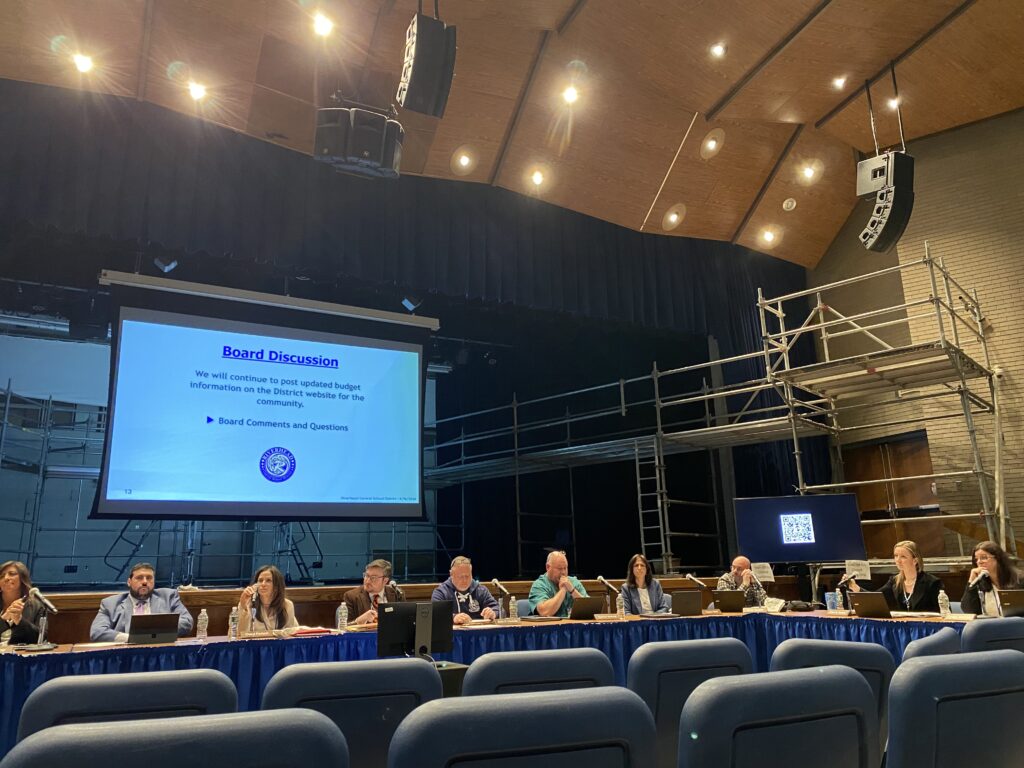LEAP panel recommends body cameras among scores of police reform proposals

Body cameras, increased recruitment of minorities and increased transparency were among the recommendations of the Riverhead Law Enforcement Advisory Panel (LEAP), which on Friday released its preliminary draft of the Police Reform and Reinvention Collaborative Plan (PRRCP) in accordance with an executive order from Governor Andrew Cuomo last year.
The order required all municipalities to conduct a similar plan and came in the wake of the police-involved death of George Floyd in Minnesota, which was captured on video and led to protests taking place throughout the nation.
The preliminary report, which will be available on the town’s website, was conducted by the 27-member LEAP panel that included elected officials, police, clergy, business owners, town officials, civic leaders and others.
They held two public listening sessions and issued a survey in which more than 1,200 residents responded.
The plan they came up with be the subject of a virtual public hearing on March 16. It must be finalized and sent to the state by April 1.
The report “will serve as meaningful opportunities for our law enforcement officers to continue and demonstrate their ongoing commitment to the values, honesty, integrity and accountability to the public they serve,” said Riverhead Supervisor Yvette Aguiar. “Their work will always remain on focusing and strengthening the public’s relationship and trust.”
The resulting reform plan consists of six categories: Equality and Social Justice, Accountability and Transparency, Community Relations, Policy and Procedures, Training and New York State Mandated Changes.
Equality and Social Justice
The plan calls for an Increase in hiring diversity to better reflect community demographics.
In terms of demographics, the report shows that that the Riverhead Police Department is 89% male and 91% white, whereas Riverhead Town is 51.5% female and 72.3% white.
The recommendation: “Testing and background investigations are under the authority of Suffolk County Civil Service and the Suffolk County Police Department Applicant Investigation Section. We will work with these agencies to identify and improve the areas that limit diversity of police candidates. We will identify community organizations to help develop mentoring programs to help potential candidates through coaching and guidance during the entire hiring process.”
The report also calls for proving civil service test training to prepare applicants for the entry-level examination.
In addition, it calls for expanding diversity and bias awareness training to include marginalized populations such as Homeless, Substance Use Disorders, Minority, and Lesbian, Gay, Bisexual, and Transgender communities, as well as training to recognize systemic racism.
Provide Test Training
“The Riverhead Police will partner with Suffolk County Community College or Suffolk County BOCES to develop a program for applicants interested in becoming a Police Office,” the plan states.
“We will also ensure we open lines of communication with our High School students to identify potential applicants who wish to apply for the Suffolk County Police test. Prior to the test, the Riverhead Police Department will host a 1 day candidate police course to assist with Civil Service test taking techniques.”
Accountability and Transparency
The plan calls for the creation of civilian panel to review personnel complaints, investigations and adjudications “to ensure that best practices in personnel actions are being followed.”
The report seeks to ensure that citizens have access to appropriate police data and arrest activities via a monthly report.
The Police Department currently reports its statistics to the Town Board in an oral and written format on a monthly basis, but that would be updated to include use of force, arrests by sex and race and any other information deemed appropriate by the Town Board, under the panel’s recommendation.
Another recommendation calls for making the complaint process more accessible to the public and including complainant data in reports.
Increasing transparency in use of force incidents also was proposed by enhancing citizen access to the Use of force data and personnel complaint incidents along with outcomes.
Making job descriptions and performance process more readily available, also was suggested, as was establishing the use of Body Worn Cameras by Police Officers.
Negotiating possible stipends with police unions for wearing body cameras, was suggested. That one was considered a long rang goal.
Community Relations
The report calls for conducting public education on police practices through community outreach and education.
Having a School Resource Officer (SRO) to provide high school lectures to new license holders on how to interact with police during traffic stops, and providing neighborhood watch lectures on police practices and how to interact with police were suggested.
Training
Expanding de-escalation training, and expanding the use of force training also were suggested.








